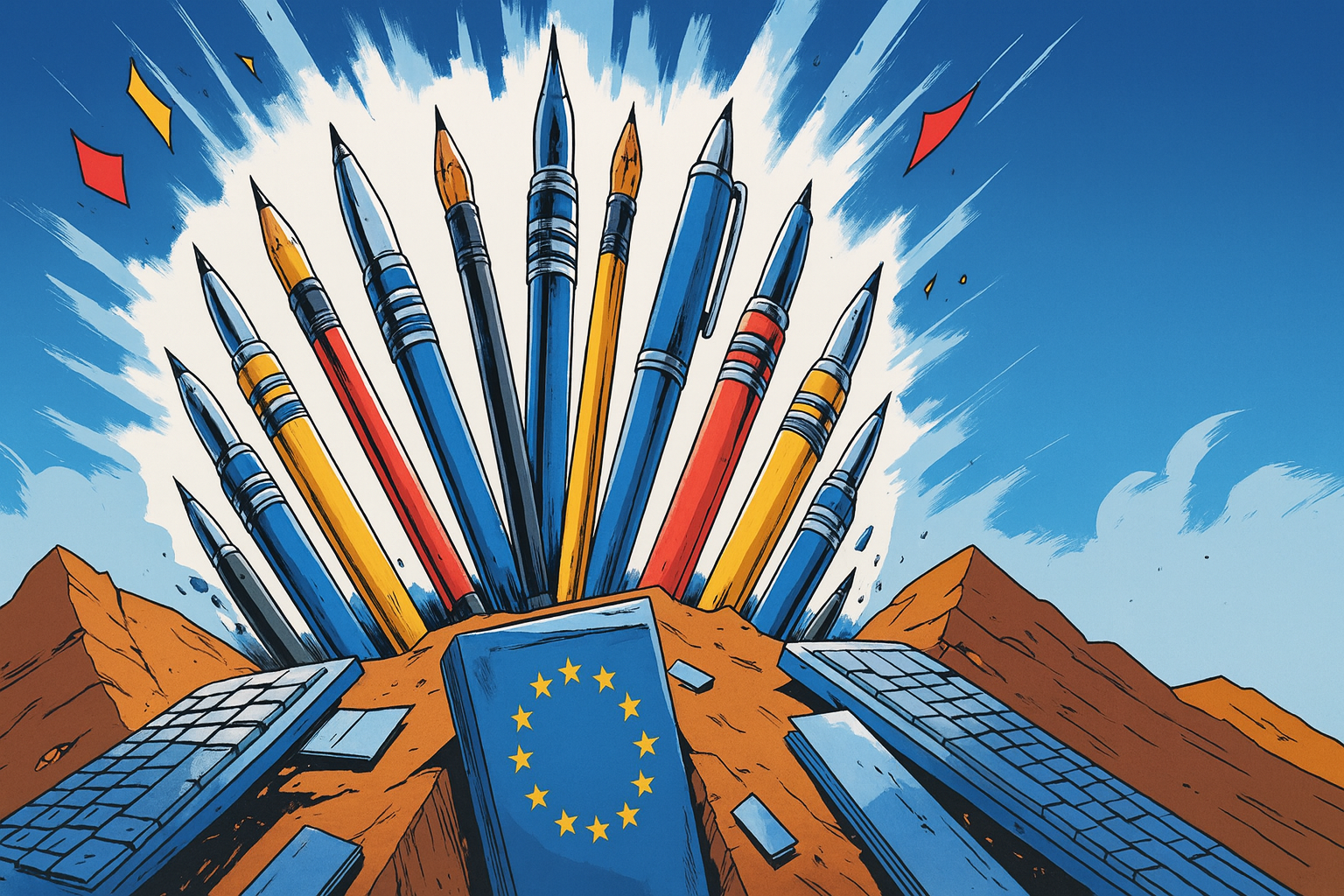EMFA in force: RAI (technically) illegal, Government Reform makes it worse
Just a few days ago, the European Media Freedom Act came into force: from that day, RAI and other public broadcasters must comply with constraints of independence and transparency. The risk is infringement procedures. The Meloni government hastily presented a proposal which, paradoxically, could make things worse.
“RAI does not belong to those who govern.”
How many times have we heard that said? From 8 August 2025 this sentence is not just a political criticism or a tweet to assert the independence of the public broadcasting service from the government of the day. Not respecting it is a legal violation.
Just a few days ago, Regulation (EU) 2024/1083, better known as the European Media Freedom Act (EMFA), came into force. A historic text, which for the first time sets clear limits on State interference in the media. Among the many articles, there is one that could rewrite the structure of public information in Italy: Article 5.
The independence of the public service is no longer an opinion.
Article 5 of the EMFA establishes that every public broadcaster in the Member States must meet minimum criteria of independence and transparency. No more politically driven appointments. No more unstable funding. No more uncertainty over the editorial mandate.
To comply with the EU, public service media must:
- have executives appointed through transparent and well-founded procedures;
- have stable and multi-year funding, independent from political pressure;
- guarantee pluralism and editorial independence, particularly for political information.
A reform? No. A law.
The EMFA is a European regulation: it applies directly in all Member States. And it applies from 8 August.
What changes with the EMFA
The new regulation opens the way to oversight, appeals, and infringements. Citizens, associations, and professionals in the sector can now report violations to the European Commission. If the State does not intervene, it can lead to an infringement procedure. But Article 5 is also a tool of democratic pressure. A legal weapon to demand an independent RAI, truly serving the general interest.
And Italy?
The question is inevitable: is RAI compatible with the EMFA?
The answer is no.
The governance of the Italian public broadcaster remains tied to political balances.
The appointment of executives depends on governments. News pluralism is too often sacrificed.
Funding is neither stable nor autonomous: the licence fee is used as a political lever, and its reduction, decided by the Meloni government with the 2024 budget law (approved at the end of 2023) and replaced by an “extraordinary allocation” from the government, further undermines the company’s independence.
From 8 August all this is not just a democratic limitation: it is a violation of European Union law.
For this reason the government hastily tried to remedy the situation but, in doing so, further worsened it. As clearly explained by USIGRAI (the union of journalists of the public service), the proposal currently on the table provides that 6 of the 7 members of the board of directors be appointed by Parliament with a simple majority, while the CEO and president be elected by the board. This means that the majority emerging victorious from the elections can in fact extend its full powers over the public broadcasting service with the direct appointment of the large majority of the board of directors and, indirectly, of the CEO and president. “Europe speaks of independence from political forces, Italy decides that the votes of the majority parties are enough to take over RAI” is USIGRAI’s comment.
Adding to this assessment was also the voice of Roberto Natale, member of the RAI board of directors, who called it “vital for the public service” to have, as soon as possible, a law implementing the EMFA. “Not only,” he explained in a statement, “to have the indispensable autonomy of the executives from the government of the day, without which RAI has for years paid a very heavy price of legitimacy in public opinion, but also because the EMFA requires guaranteeing ‘adequate, sustainable and predictable financial resources… such as to safeguard editorial independence.’”
A law for democracy
The EMFA arises from a real urgency: press freedom is under attack across Europe. In some countries – Hungary, Poland, Greece – public media have become propaganda tools. But in Italy too the situation is fragile. And today, there is no longer any room for ambiguity. Those who work in media, rights, advocacy, and public affairs have a concrete responsibility: to monitor the independence of public media and to put pressure on Italy to adapt its public service to the standards established by the European Media Freedom Act.
The law is clear.
Either the public service is independent.
Or it is no longer legitimate.





